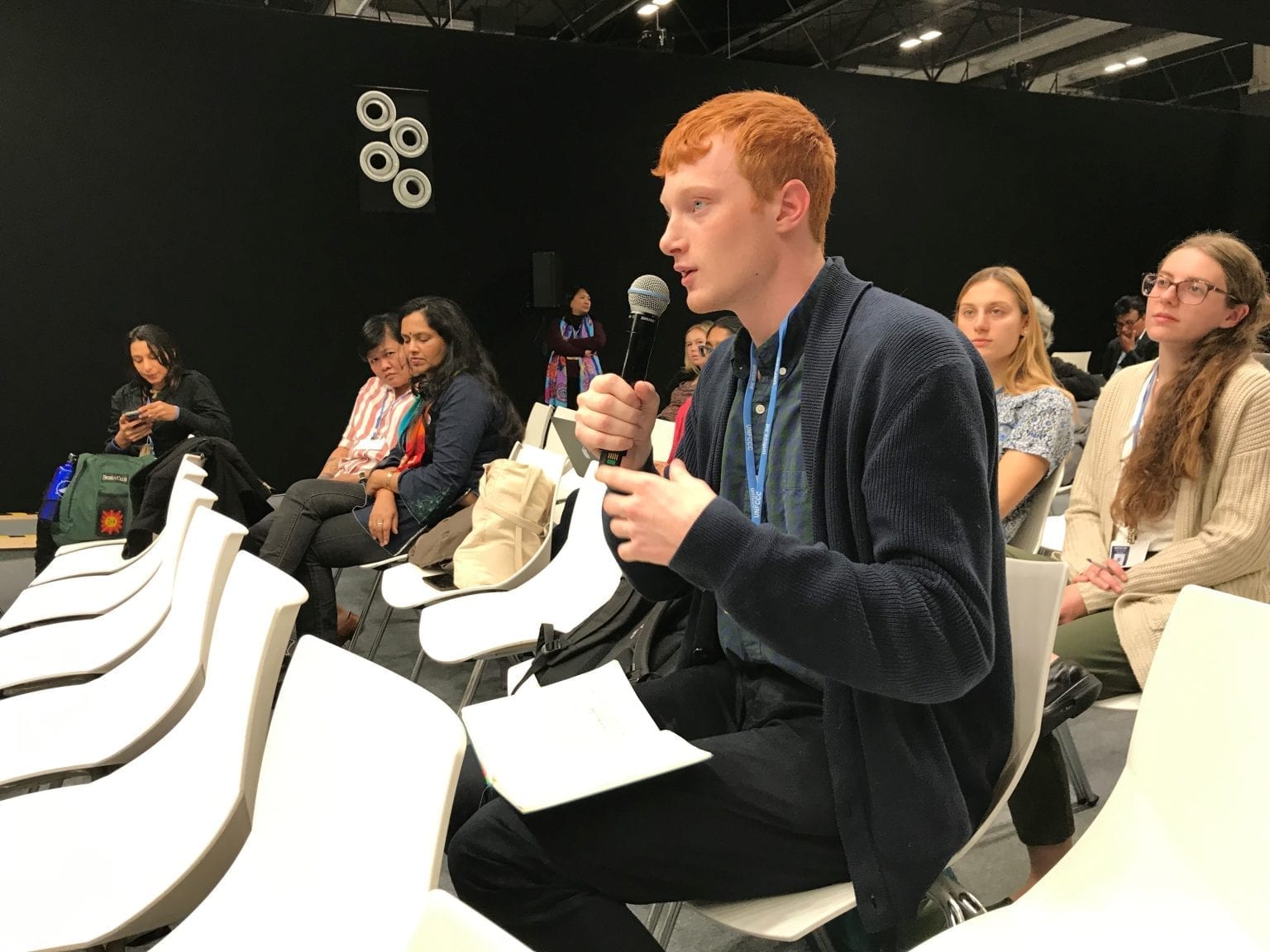UConn’s Office of Undergraduate Research each year provides Summer Undergraduate Research Fund (SURF) awards to support full-time undergraduate students in summer research or creative projects – an initiative that continues this year, despite the challenges presented by the COVID-19 pandemic.
SURF awards are available to students in all majors at all UConn campuses. The students’ project proposals are reviewed by a faculty committee representing various schools and colleges, and SURF award recipients are chosen through a competitive process. Each SURF award winner is supervised by a UConn faculty member.
This summer, UConn Today will take a look at various 2020 SURF scholars and their work, with this entry the final installment.
Name: Harry Zehner
Hometown: New Haven
Year: Rising Senior
Major: Political science
Summer research project: Institutionalizing environmentally friendly behavior by designing a proxy carbon price for UConn with Oksan Bayulgen, an associate professor in the Department of Political Science.
What is your summer research focused on?
There is this concept in environmental economics called the social cost of carbon, which is basically arguing that when we emit carbon into the atmosphere, we are creating climate change which has negative effects on the world. There is a cost to that. The challenge is that this cost is not always integrated into decision-making processes, because it is not a cost that is immediately felt and it is not a cost spread widely across the world.
When carbon emissions are emitted, we know that is a bad thing for the world, but it is not something that has to be immediately accounted for within a budgeting process. That is the general idea when people talk about carbon taxes – trying to account for the social cost of carbon. On a country scale or state scale in a broader market, carbon taxes are a typical solution. Inside an institution like UConn, there are a couple of things that UConn can do that are similar to carbon taxes, and the research I am doing is called carbon proxy price. Basically, the idea behind a carbon proxy price is that the social cost of carbon can be used as a planning tool when a place like UConn is making capital investment decisions.
So for instance, when they are building something new or doing renovations on a building, they can weigh not only the standard kind of operating cost assessments over the lifetime of a building, they can also add on the social costs of carbon in terms of how much energy the building will use and where it will come from.
What will the finished product of your research be?
It will basically be a proposal, and it is also my senior thesis through the political science department. It will be a longer-form product that goes through all the research I have done. I hope to produce a shorter report and proposal for the Board of Trustees and senior administrators about what a proxy price can do for UConn, and how it can be implemented into the planning process. I’ve been lucky enough to be in contact with, and work alongside of, a couple of the senior administrative members over the last year or so, and they are supportive of my work.
This sounds like it is a great passion of yours. How did you get involved in it?
I’ve been relatively involved in climate change and climate justice work at UConn since my sophomore spring. I ran into (ecology and evolutionary biology) professor Mark Urban at an event called ‘Climate Change Café,’ which the Office of Sustainability puts on. I was talking to as many people as I could about what UConn can do. I applied to be a University Scholar, which made a lot of sense, because it would give me three semesters plus a summer to do the research justice.
What are your future plans?
I am looking at grad school, but am not really sure what I want to do. This project is interesting because it doesn’t necessarily line up with the rest of what I do in my life. It is definitely something I am interested in, but a lot of the work I do otherwise is more political and policy-based. For instance, I worked on a state senate campaign as a policy writer and researcher director, which is a little bit more on the political education communications side, as opposed to academic research, because you are really trying to figure out how to present ideas to people that are more palatable, but also detailed. So I think my work after college will be more political education.
How has the COVID-19 pandemic affected your research?
Everything I do is remote and on my computer. I probably have one of the easier summer research projects to do in terms of adjusting to the new situation. I wasn’t planning on being on campus, so it only affected me in minor ways as opposed to others, who were greatly affected.



